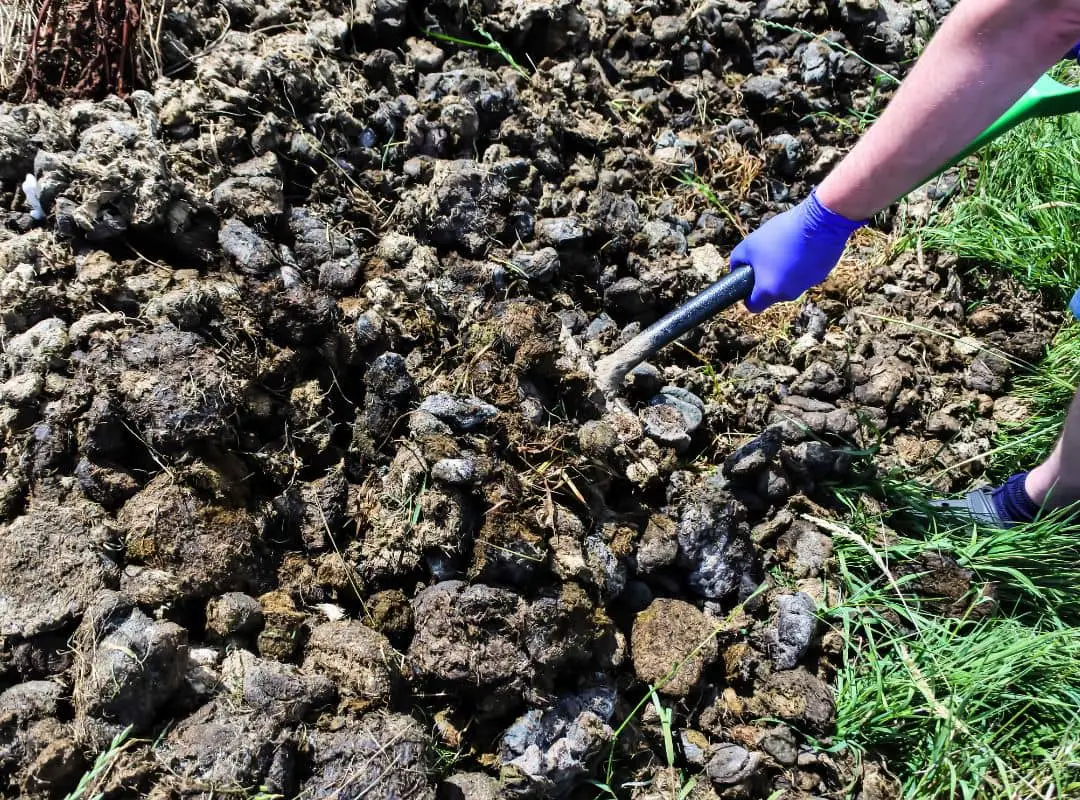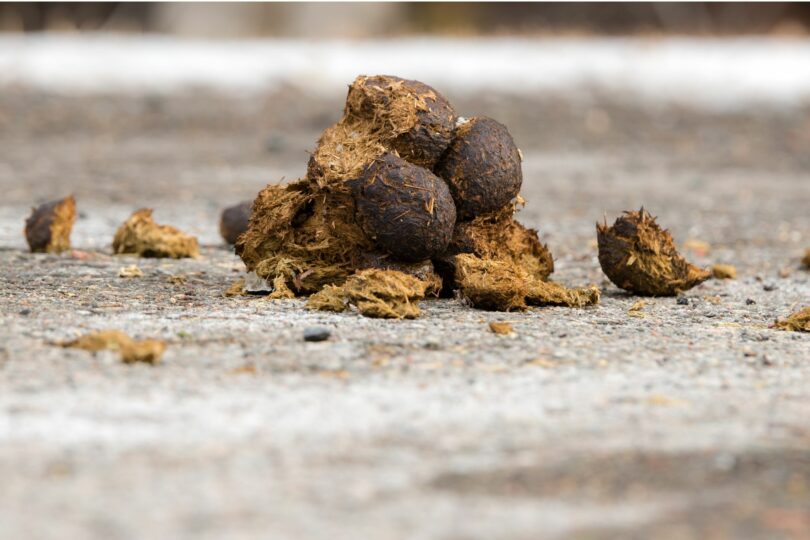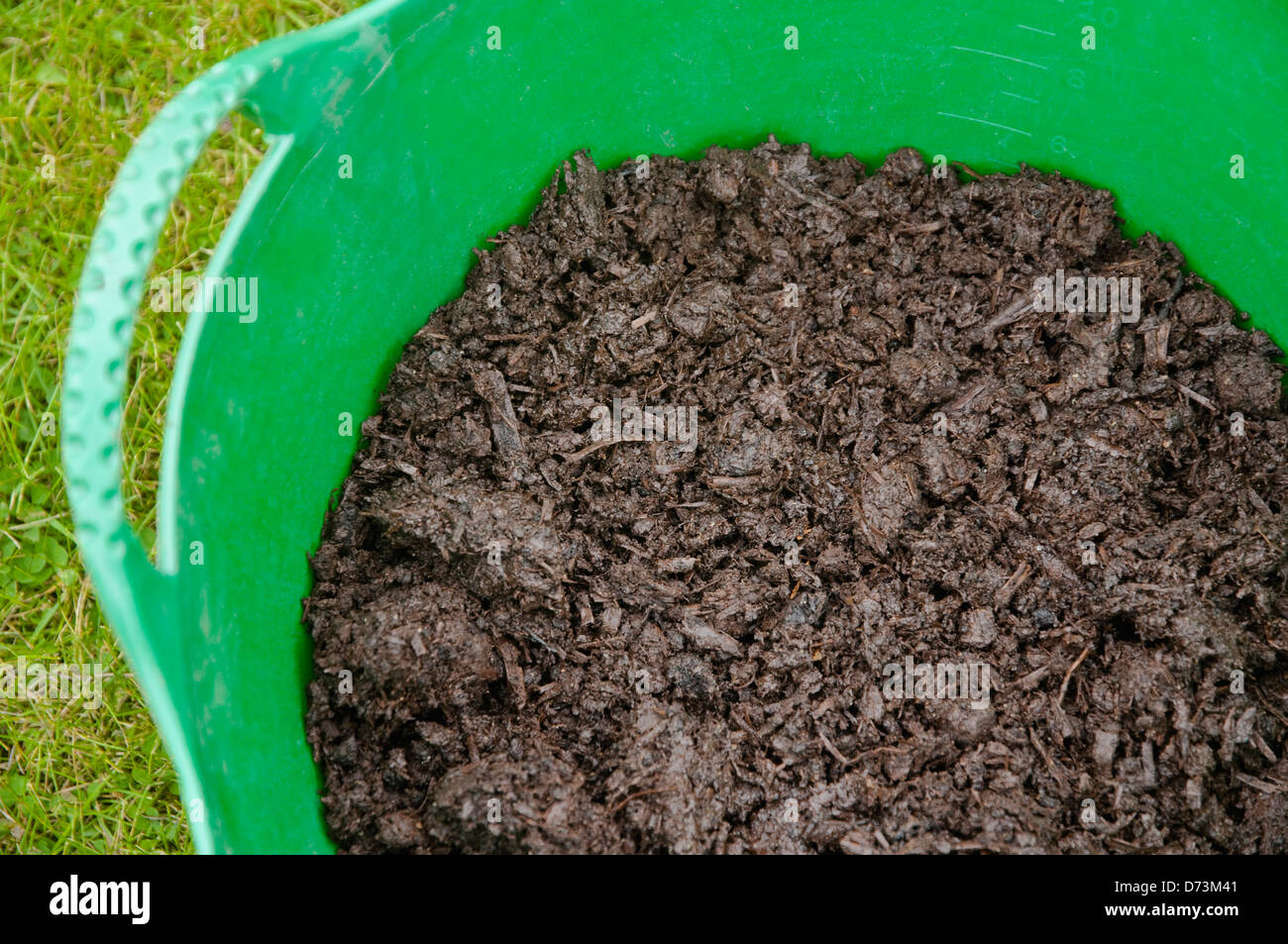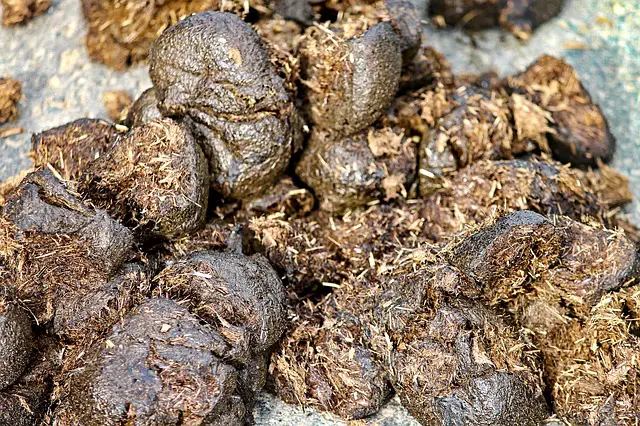Natural Fertilizer: How Horse Manure Can Transform Your Garden
Horse manure is a valuable resource that has been used for centuries as a natural fertilizer. It is rich in nutrients, including nitrogen, phosphorus, and potassium, making it an ideal amendment for improving soil fertility. Unlike synthetic fertilizers, horse manure is a slow-release fertilizer that provides a steady supply of nutrients to plants, promoting healthy growth and development.
One of the key benefits of using horse manure as a fertilizer is its ability to improve soil structure. The organic matter in horse manure helps to increase the soil’s water-holding capacity, reduce soil compaction, and promote healthy drainage. This, in turn, creates a favorable environment for plant roots to grow, leading to improved crop yields and reduced soil erosion.
In addition to its nutritional benefits, horse manure is also an environmentally friendly alternative to synthetic fertilizers. Synthetic fertilizers can pollute soil, air, and water, and contribute to climate change. In contrast, horse manure is a natural, biodegradable resource that can be easily composted and reused, reducing waste and minimizing environmental impact.
So, what is horse manure good for? The answer is clear: it is an excellent natural fertilizer that can transform your garden by improving soil fertility, structure, and overall health. By incorporating horse manure into your gardening routine, you can create a thriving and sustainable garden that benefits both you and the environment.
When using horse manure as a fertilizer, it is essential to follow proper application guidelines to ensure optimal results. This includes mixing the manure with other compost materials, such as straw or leaves, to create a balanced fertilizer blend. It is also crucial to apply the manure at the right time, typically during the growing season, to maximize its benefits.
Overall, horse manure is a valuable resource that can provide numerous benefits for gardeners and farmers. By harnessing its potential, you can create a more sustainable and productive garden that thrives for years to come.
Composting 101: How to Turn Horse Manure into a Valuable Resource
Composting horse manure is a simple and effective way to turn a waste product into a valuable resource for your garden. By following a few basic steps, you can create a nutrient-rich compost that will help your plants thrive.
The first step in composting horse manure is to collect the manure and mix it with other compost materials, such as straw or leaves. This will help to create a balanced carbon-to-nitrogen ratio, which is essential for optimal composting. A general rule of thumb is to mix 2/3 “brown” materials (such as straw or leaves) with 1/3 “green” materials (such as horse manure).
Next, you will need to add water to the mixture to create a moist, but not soggy, consistency. The ideal moisture level is like a damp sponge. You should also add a source of nitrogen, such as blood meal or fish emulsion, to help speed up the composting process.
Once you have created the compost mixture, you will need to aerate it regularly to ensure that oxygen is reaching all parts of the pile. This can be done by turning the pile every few days or by using a compost aerator. You should also monitor the temperature of the pile, as it should reach temperatures of 130-140°F (54-60°C) to kill off any pathogens.
After several weeks, the compost should be ready to use. It should have a rich, earthy aroma and a crumbly texture. You can use the compost as a fertilizer, adding it to your soil to improve its structure and fertility.
So, what is horse manure good for? In addition to its use as a natural fertilizer, horse manure can also be used to create a valuable compost that will help your plants thrive. By following these simple steps, you can turn a waste product into a valuable resource that will benefit your garden for years to come.
Troubleshooting common issues is also an important part of the composting process. Some common problems include odors, pests, and slow decomposition. To address these issues, you can try adding more brown materials, covering the pile, or turning the pile more frequently.
By following these tips and guidelines, you can create a high-quality compost that will help your garden flourish. Remember to always follow proper safety protocols when handling horse manure and compost, and happy composting!
Horse Manure as a Pest Control Agent: A Natural Solution for Your Garden
Horse manure is not only a valuable fertilizer, but it also has natural pest control properties that can help protect your garden from common pests. One of the most significant benefits of using horse manure as a pest control agent is its ability to repel nematodes, whiteflies, and other microorganisms that can harm plants.
Nematodes are microscopic worms that can cause significant damage to plants by feeding on their roots. Horse manure has been shown to repel nematodes, reducing the risk of infestation and promoting healthy plant growth. Similarly, whiteflies are common garden pests that can transmit diseases and reduce crop yields. Horse manure has been found to repel whiteflies, reducing the risk of infestation and promoting healthy plant growth.
The pest control properties of horse manure are attributed to its high nutrient content and the presence of beneficial microorganisms. These microorganisms, such as bacteria and fungi, help to break down organic matter and create a hostile environment for pests. By incorporating horse manure into your garden, you can create a natural barrier against pests and promote healthy plant growth.
In addition to its pest control properties, horse manure also has natural fungicidal properties that can help prevent the spread of diseases. By using horse manure as a natural fungicide, you can reduce the risk of disease transmission and promote healthy plant growth.
So, what is horse manure good for? In addition to its use as a natural fertilizer, horse manure is also a valuable pest control agent that can help protect your garden from common pests. By incorporating horse manure into your garden, you can create a natural barrier against pests and promote healthy plant growth.
Using horse manure as a pest control agent is a simple and effective way to promote healthy plant growth and reduce the risk of pest infestation. By following a few basic steps, you can harness the natural pest control properties of horse manure and create a thriving and sustainable garden.
Some tips for using horse manure as a pest control agent include mixing it with water to create a liquid solution, applying it to the soil or plants, and repeating the process regularly to maintain its effectiveness. By following these tips and incorporating horse manure into your garden, you can create a natural and sustainable pest control solution that promotes healthy plant growth and reduces the risk of pest infestation.
The Benefits of Horse Manure Tea: A Liquid Gold for Your Plants
Horse manure tea is a liquid fertilizer made by steeping horse manure in water. This natural and organic fertilizer is rich in nutrients and beneficial microorganisms that can help promote healthy plant growth, improve soil biota, and increase crop yields.
One of the main benefits of horse manure tea is its ability to provide a slow release of nutrients to plants. This means that plants can absorb the nutrients they need over a longer period, reducing the need for frequent fertilization. Additionally, horse manure tea is rich in beneficial microorganisms that can help to break down organic matter and create a healthy soil ecosystem.
Horse manure tea is also a great way to improve soil biota. The beneficial microorganisms present in the tea can help to increase the population of beneficial microorganisms in the soil, which can lead to improved soil health and fertility. This can also help to reduce the need for synthetic fertilizers and pesticides, creating a more sustainable and environmentally friendly gardening practice.
Using horse manure tea as a fertilizer is a simple and effective way to promote healthy plant growth and improve soil biota. To make horse manure tea, simply steep a bucket of horse manure in water for several days, then strain the liquid and use it as a fertilizer. This can be done by pouring the tea directly onto the soil or by using it as a foliar spray.
So, what is horse manure good for? In addition to its use as a natural fertilizer and pest control agent, horse manure is also a valuable resource for making horse manure tea. By using horse manure tea as a fertilizer, you can promote healthy plant growth, improve soil biota, and increase crop yields, all while reducing your environmental impact.
Some tips for using horse manure tea include using it as a foliar spray to promote healthy plant growth, adding it to the soil to improve soil biota, and using it as a fertilizer to increase crop yields. By following these tips and incorporating horse manure tea into your gardening practice, you can create a more sustainable and environmentally friendly garden that thrives for years to come.
Overall, horse manure tea is a valuable resource that can provide numerous benefits for gardeners and farmers. By harnessing the power of horse manure tea, you can promote healthy plant growth, improve soil biota, and increase crop yields, all while reducing your environmental impact.
Horse Manure in Bioremediation: Cleaning Polluted Soil with Equine Waste
Horse manure has been found to be an effective tool in bioremediation, the process of using living organisms to clean polluted soil. The high nutrient content and beneficial microorganisms present in horse manure make it an ideal agent for removing heavy metals and other pollutants from soil.
One of the most significant benefits of using horse manure in bioremediation is its ability to remove heavy metals from soil. Heavy metals such as lead, mercury, and arsenic can be toxic to plants and animals, and can have serious environmental and health impacts. Horse manure has been shown to be effective in removing these heavy metals from soil, making it a valuable tool in the cleanup of polluted sites.
In addition to its ability to remove heavy metals, horse manure has also been found to be effective in restoring ecosystem balance. By introducing beneficial microorganisms into the soil, horse manure can help to promote healthy microbial activity, which can lead to improved soil fertility and structure.
The use of horse manure in bioremediation is a relatively simple process. The manure is typically applied to the soil in a specific ratio, and then allowed to sit for a period of time. The beneficial microorganisms present in the manure then work to break down the pollutants, making the soil safe for plant growth.
So, what is horse manure good for? In addition to its use as a natural fertilizer and pest control agent, horse manure is also a valuable tool in bioremediation. By using horse manure to clean polluted soil, we can promote healthy ecosystem balance, remove heavy metals, and create a safer and more sustainable environment.
Some of the benefits of using horse manure in bioremediation include its low cost, ease of use, and effectiveness in removing heavy metals and other pollutants. Additionally, the use of horse manure in bioremediation can help to promote sustainable agriculture and reduce the environmental impacts of farming.
Overall, the use of horse manure in bioremediation is a valuable tool in the cleanup of polluted soil. By harnessing the power of horse manure, we can promote healthy ecosystem balance, remove heavy metals, and create a safer and more sustainable environment.
Using Horse Manure in Mushroom Cultivation: A Unique Application
Horse manure has been found to be a valuable resource in mushroom cultivation, providing a nutrient-rich substrate for mushroom growth. The high nutrient content and beneficial microorganisms present in horse manure make it an ideal medium for promoting healthy mycelium growth and increasing mushroom yields.
One of the most significant benefits of using horse manure in mushroom cultivation is its ability to provide a consistent and reliable source of nutrients. Horse manure is rich in nitrogen, phosphorus, and potassium, making it an ideal medium for promoting healthy mycelium growth and fruiting body formation.
In addition to its nutritional benefits, horse manure has also been found to have beneficial effects on mushroom yield and quality. Studies have shown that horse manure can increase mushroom yields by up to 20% and improve the quality of the mushrooms by increasing their size and flavor.
The use of horse manure in mushroom cultivation is a relatively simple process. The manure is typically pasteurized to kill off any pathogens, and then mixed with other substrates such as straw or peat moss. The mixture is then inoculated with mushroom spores and incubated in a controlled environment.
So, what is horse manure good for? In addition to its use as a natural fertilizer, pest control agent, and bioremediation tool, horse manure is also a valuable resource in mushroom cultivation. By using horse manure as a substrate, mushroom growers can promote healthy mycelium growth, increase mushroom yields, and improve the quality of their mushrooms.
Some of the benefits of using horse manure in mushroom cultivation include its low cost, ease of use, and effectiveness in promoting healthy mycelium growth and increasing mushroom yields. Additionally, the use of horse manure in mushroom cultivation can help to reduce waste and promote sustainable agriculture.
Overall, the use of horse manure in mushroom cultivation is a unique and valuable application of this resource. By harnessing the power of horse manure, mushroom growers can promote healthy mycelium growth, increase mushroom yields, and improve the quality of their mushrooms.
The Economic Benefits of Horse Manure: Creating a Valuable Resource from Waste
Horse manure is not only a valuable resource for gardeners and farmers, but it also has significant economic benefits. By harnessing the potential of horse manure, individuals and businesses can create new revenue streams, reduce waste, and promote sustainable agriculture.
One of the most significant economic benefits of horse manure is its potential as a valuable resource. Horse manure can be sold as a natural fertilizer, pest control agent, and bioremediation tool, providing a new revenue stream for farmers and gardeners. Additionally, the use of horse manure in mushroom cultivation and bioremediation can create new job opportunities and stimulate local economies.
The use of horse manure in agriculture can also reduce waste and promote sustainable agriculture. By using horse manure as a natural fertilizer, farmers can reduce their reliance on synthetic fertilizers and promote healthy soil biota. This can lead to increased crop yields, improved soil fertility, and reduced environmental impacts.
In addition to its economic benefits, the use of horse manure can also promote sustainable agriculture and reduce waste. By harnessing the potential of horse manure, individuals and businesses can reduce their environmental footprint and promote sustainable agriculture.
So, what is horse manure good for? In addition to its use as a natural fertilizer, pest control agent, and bioremediation tool, horse manure is also a valuable resource with significant economic benefits. By harnessing the potential of horse manure, individuals and businesses can create new revenue streams, reduce waste, and promote sustainable agriculture.
Some of the economic benefits of horse manure include its potential as a valuable resource, job creation opportunities, and revenue streams for farmers and gardeners. Additionally, the use of horse manure in agriculture can reduce waste and promote sustainable agriculture, leading to increased crop yields, improved soil fertility, and reduced environmental impacts.
Overall, the economic benefits of horse manure are significant, and its potential as a valuable resource should not be overlooked. By harnessing the potential of horse manure, individuals and businesses can create new revenue streams, reduce waste, and promote sustainable agriculture.
Conclusion: Unlocking the Full Potential of Horse Manure
Horse manure is a valuable resource that has been overlooked for far too long. As we have seen, it has a multitude of benefits, from its use as a natural fertilizer and pest control agent to its potential in bioremediation and mushroom cultivation. By harnessing the power of horse manure, we can create a more sustainable and environmentally friendly approach to agriculture and gardening.
So, what is horse manure good for? The answer is clear: it is a versatile and valuable resource that can be used in a variety of ways to promote healthy plant growth, improve soil biota, and increase crop yields. Whether you are a gardener, farmer, or simply someone looking for a more sustainable approach to agriculture, horse manure is definitely worth considering.
In conclusion, horse manure is a valuable resource that deserves to be recognized for its many benefits. By unlocking the full potential of horse manure, we can create a more sustainable and environmentally friendly approach to agriculture and gardening. So, next time you are thinking about what to do with your horse’s waste, remember the many benefits of horse manure and consider using it to improve your garden or farm.
As we have seen, horse manure is a valuable resource that can be used in a variety of ways. From its use as a natural fertilizer and pest control agent to its potential in bioremediation and mushroom cultivation, horse manure is a versatile and valuable resource that deserves to be recognized. By harnessing the power of horse manure, we can create a more sustainable and environmentally friendly approach to agriculture and gardening.
In addition to its many benefits, horse manure is also a cost-effective and environmentally friendly alternative to synthetic fertilizers and pest control agents. By using horse manure, gardeners and farmers can reduce their reliance on these chemicals and promote healthy soil biota. This can lead to increased crop yields, improved soil fertility, and reduced environmental impacts.
Overall, horse manure is a valuable resource that deserves to be recognized for its many benefits. By unlocking the full potential of horse manure, we can create a more sustainable and environmentally friendly approach to agriculture and gardening. So, next time you are thinking about what to do with your horse’s waste, remember the many benefits of horse manure and consider using it to improve your garden or farm.





/removing-horse-dung-157676514-58d90bc45f9b5846837f1512.jpg)


